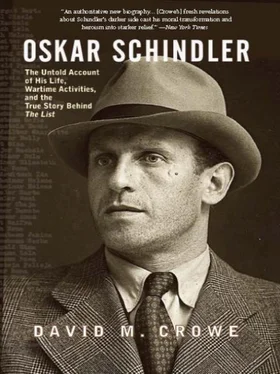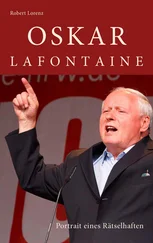Oskar downplayed his work with Abwehr in the years immediately after World War II because of the stigma associated with such service. He also knew that the Czechs were looking for him as a war criminal. However, after he returned to Germany from Argentina, he became a little more open about his work with Canaris’s organization. In 1966, Oskar wrote two documents, a Lebenslauf (c.v., curriculum vitae) and a list of important dates in his life. In these documents, he admitted that he had joined Abwehr in 1936 and served with Abwehrstelle II’s Commando VIII unit, whose headquarters were in Breslau (today, Wrocław, Poland). He was probably part of Abwehr III (counterespionage) initially, since in 1936 Abwehr II dealt principally with cipher and radio monitoring. When Canaris reorganized Abwehr in 1938, the new Abwehr II absorbed some of the old Abwehr III’s responsibilities, particularly those dealing with foreign minorities. The new Abwehr II was responsible for, among other things, agitating abroad and developing fifth columns. 59
In his 1951 letter to Fritz Lang, who had fled Germany soon after Hitler took power to avoid becoming head of the Nazi film industry, Oskar downplayed his work with Abwehr. He told the film maker that his next contacts with Abwehr came innocently in the summer of 1938. Several years earlier, he had met “a very nice, humorous girl” while on business in the Riesen Gebirge (Riesengebirge) mountains that ran along the German, Polish, and Czechoslovak borders. In the summer of 1938, Oskar’s “humorous girl” asked him to help her cross the Czechoslovak-German border illegally. Oskar explained that she was afraid of dealing with Czechoslovak border officials because her brother had fled to Germany the year before for political reasons. Oskar drove her to the border, where one of her relatives showed them where to avoid border officials.
The relative advised Oskar to cross on foot. Schindler, though, demurred because he was “not a fan of morning walks through the dew-fresh grass, especially with suitcases.” Instead, he drove into Germany along the footpath. Once in Germany, a “well-dressed civilian” escorted Oskar and his friend to a hotel in Ziegenhals, where the girl’s brother lived. Oskar claimed that he met an officer in Ziegenhals who liked his “impudent deed” and advised him to stay in Germany. Oskar reminded the officer that he had a wife and a job in Svitavy and that he had to return soon. Later that evening, several Germans caused a commotion near the border crossing to provide a cover while Oskar raced across in his car. Schindler told Lang that he made this illegal crossing once more on foot to see this young woman in Ziegenhals. After the second trip, the Czechoslovak police arrested him. 60
Who was this mysterious woman and what connection did she have to Abwehr? Schindler provided the answers in his 1938 statement to the Czech secret police after his arrest. Her name was Gritt Schwarzer, whom Oskar met on a weekend holiday in Rumburg (Czech, Rumberk) in 1936. Later, Gritt became the manager of the Juppebad Hotel in Ziegenhals (today, the Polish town of Głuchołazy) just across the Czechoslovak border in Germany. Their chance meeting marked the beginning of their three-year romantic relationship and of Oskar’s more direct involvement in Abwehr activities. Over the years, Oskar and Gritt corresponded and met occasionally in Germany when Oskar traveled there on business. One of their liaisons took place in Freiwalden, just south of Berlin. According to Thomas Keneally, Gritt introduced Oskar to Eberhard Gebauer, an Abwehr agent who asked Oskar to supply Canaris’s organization with military information from southern Poland, where Oskar frequently traveled. 61
Yet details about Oskar’s Abwehr activities in the testimony of other Sudeten Germans recruited by Oskar and by the Czech secret police before and after World War II show a much more seasoned spy than the one painted by Schindler. A highly confidential Czech secret police report dated July 28, 1938, concluded that Oskar was “a spy of big caliber and an especially dangerous type.” This conclusion was reached partly because the Czechoslovak police considered Schindler’s contact person in Germany, Kreuziger, “one of the leading figures of the German Empire espionage service.” In a November 1945 Czech secret police report about SD and Abwehr activities in Czechoslovakia before World War II, Oskar appears first in an unalphabetized list of nine Czechoslovaks engaged in serious activities against Poland. His name also appears frequently in other postwar Czech secret police investigations of spying in pre-1939 Czechoslovakia. 62
According to Dr. Sobotka, the head of the police directorate in Brno who oversaw Schindler’s confession and signed it, what made Oskar so good at his work were his manipulative skills, his natural eloquence, his intelligence, and his good observation techniques. Yet, unlike many of the Sudeten Germans who chose to work for Abwehr or other German groups at this time, Oskar Schindler was not motivated by Sudeten German patriotism. According to Dr. Sobotka, Oskar was “a very frivolous man of shady character whose only aspiration [was] to obtain easily and without work a lot of money.” Oskar openly admitted to his Czech interrogators that he had joined Abwehr because of money. Before he became a German spy, he had a monthly income of between 8,000 and 10,000 Czech crowns ($277–$346), though his weakness for alcohol and women kept him constantly in debt. Dr. Sobotka said that Oskar was so desperate for money that he would even risk treasonous activities against his own country to obtain it. 63
What specifically, then, did Oskar Schindler do as a German spy and what was it that led to his arrest in the summer of 1938? Second, what was his relationship to Abwehr after his pardon by German authorities in the Sudetenland after the Munich Accord in the fall of 1938? The detailed Czech secret police reports that were written during Oskar’s three-month incarceration in 1938 and after World War II provide some clues to his activities, as do Emilie’s memoirs and statements by Oskar himself. Abwehr was careful about the foreigners it chose to work in military counterintelligence. The Central Office in Berlin kept tabs on the political sentiments of Sudeten Germans and considered many of them unreliable because of religious, political, and nationalistic reasons. Oskar’s SdP membership gave him some credibility as a potential spy, though his greed and intelligence were probably also important elements in the decision of Abwehr’s field agents to use Schindler to help compromise Czechoslovak military security. His being in the military reserves was also useful to them. Their trust in him made him an important agent in a highly sensitive area that was important to German plans for the takeover of the Sudetenland and the rest of Czechoslovakia. After Schindler was pardoned in the fall of 1938, Abwehr promoted him and sent him as second in command of a group of twenty-five agents operating out of Ostrava (Mährisch-Ostrau) on the Czechoslovak-Polish border. Oskar now worked with Abwehr to help plan the invasion of Poland. 64
Oskar Schindler operated in a strategically important area for the German military as it planned the takeover of Czechoslovakia and later Poland. Abwehr made its first forays into the Czechoslovak Republic in the late 1920s. Admiral Canaris intensified these contacts in January 1935 through Henlein’s liaison in Berlin, Friedrich Bürger. Canaris would later brag that Abwehr had “discovered” Henlein. This is an exaggeration, but it is true that Abwehr was one of the first German organizations to realize the value of Henlein and the SdP to the Third Reich. The SD and the Gestapo remained suspicious of the SdP leader; in 1936, one SD report called Henlein “a slave of Rome” who was seriously damaging Germany’s efforts to draw closer to the Sudeten Germans. 65
Читать дальше












